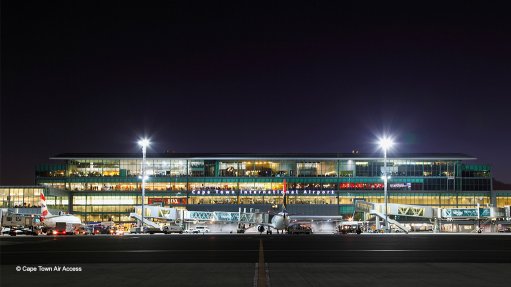GPITT
Don’t you just love acronyms? Well, I do not. They are my pet peeve. In case you were wondering, the word acronym is created from the Greek roots ‘acr’, which means ‘tip’ or ‘beginning’, and ‘onym’, which means ‘name’.
The first known English acronyms, SCOTUS and POT, are said to have appeared in the telegraphic code developed in 1879 by Walter P Phillips for the United Press Association, according to The New York Times. The acronyms were for ‘Supreme Court of the United States’ and President of the’.
In case you thought that acronyms should be short, the longest acronym is 56 letters long and appears in the Concise Dictionary of Soviet Terminology, Institutions and Abbreviations. It’s NIIOMTPLABOPARMBETZHELBETRABS-BOMONIMONKONOTDTEKHSTROMONT and stands for ‘The Laboratory for Reinforcement, Concrete and Ferroconcrete Operations, for Composite-Monolithic and Monolithic Constructions, of the Department of the Technology of Building-Assembly operations, of the Scientific Research Institute of the Organisation for Mechanisation and Technical Aid.
Although not quite that long, the longest English acronym in use is the 22-letter Adcomsubordcomphibspac, a navy term standing for Administrative Command, Amphibious Forces, Pacific Fleet Subordinate Command.
Which brings us to this article’s title – GPITT. Although my father never used the acronym, it was one of his favourite expressions, especially when, as a young child, I tested his patience to the max. “Go play in the traffic,” he would say, as many a father in the neighbourhood would. For the sake of sensitive readers, I should mention that no children were hurt as a result of this instruction, as we did not interpret it literary. It merely meant that you had to make a hasty departure or get lost. The polite expression is: “Go away and leave one alone because what is being done or said is very irritating” or “Go elsewhere and feel free to engage in risky behaviour.”
The GPITT international trade equivalent is the treatment to which the majority of countries are subjecting the World Trade Organisation (WTO). It is not that the WTO is proving to be an irritation, but so worrying that the countries simply do not care for its existence. As my grandmother used to say, “nothing hurts more than being ignored, replaced, forgotten or lied to”.
The WTO was established on January 1, 1995, and is an international organisation designed by its founders to supervise and liberalise international trade. So, how many trade rounds did it conclude in its 27 years (1995 to 2022), considering that the first was launched at the WTO’s Fourth Ministerial Conference in Doha, Qatar, on November 9, 2001. In comparison, the General Agreement on Tariffs and Trade, or GATT, concluded eight international trade rounds in its 54 years of existence – from 1947 to 2001.
To state the obvious, the WTO is in dire straits. Interestingly, on March 7, the organisation’s deputy director-general was quoted as having said: “We need a plan, not just a promise, to revitalise trade cooperation.”
She observed: “Trade was changing rapidly and profoundly, yet trade cooperation was lagging behind. The risk is that trade tensions and power-based trade relations increasingly fill the void left by reduced trade cooperation.”
She went on to say: “Global value chains are being organised more and more around intangibles such as data-driven services and intellectual property, and less and less around manufacturing. But trade policies have not adapted to this new reality, as barriers to services trade remain high, digital protectionism is on the rise and many legal, regulatory and procedural barriers continue to affect investment.
“Faced with a rapidly changing trade landscape, WTO members need a plan to coordinate national trade initiatives so that they all pull in the direction of open, predictable and resilient trade.”
How can the WTO expect trade cooperation if it cannot even ensure trade negotiation?
Article Enquiry
Email Article
Save Article
Feedback
To advertise email advertising@creamermedia.co.za or click here
Announcements
What's On
Subscribe to improve your user experience...
Option 1 (equivalent of R125 a month):
Receive a weekly copy of Creamer Media's Engineering News & Mining Weekly magazine
(print copy for those in South Africa and e-magazine for those outside of South Africa)
Receive daily email newsletters
Access to full search results
Access archive of magazine back copies
Access to Projects in Progress
Access to ONE Research Report of your choice in PDF format
Option 2 (equivalent of R375 a month):
All benefits from Option 1
PLUS
Access to Creamer Media's Research Channel Africa for ALL Research Reports, in PDF format, on various industrial and mining sectors
including Electricity; Water; Energy Transition; Hydrogen; Roads, Rail and Ports; Coal; Gold; Platinum; Battery Metals; etc.
Already a subscriber?
Forgotten your password?
Receive weekly copy of Creamer Media's Engineering News & Mining Weekly magazine (print copy for those in South Africa and e-magazine for those outside of South Africa)
➕
Recieve daily email newsletters
➕
Access to full search results
➕
Access archive of magazine back copies
➕
Access to Projects in Progress
➕
Access to ONE Research Report of your choice in PDF format
RESEARCH CHANNEL AFRICA
R4500 (equivalent of R375 a month)
SUBSCRIBEAll benefits from Option 1
➕
Access to Creamer Media's Research Channel Africa for ALL Research Reports on various industrial and mining sectors, in PDF format, including on:
Electricity
➕
Water
➕
Energy Transition
➕
Hydrogen
➕
Roads, Rail and Ports
➕
Coal
➕
Gold
➕
Platinum
➕
Battery Metals
➕
etc.
Receive all benefits from Option 1 or Option 2 delivered to numerous people at your company
➕
Multiple User names and Passwords for simultaneous log-ins
➕
Intranet integration access to all in your organisation
















